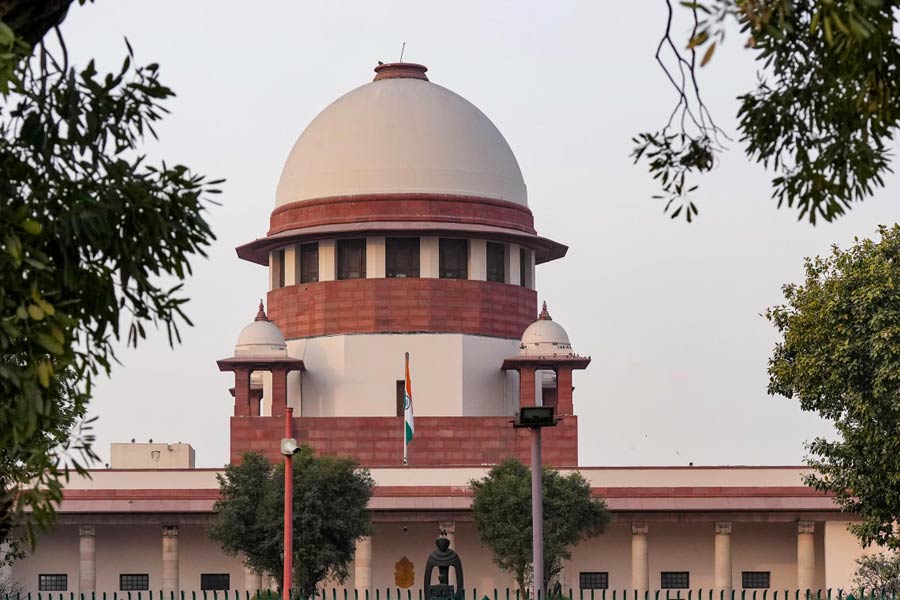Article 370 of the Constitution, which bestowed special status on the erstwhile state of Jammu and Kashmir, was a "temporary provision", the Supreme Court ruled on Monday.
In a landmark verdict, the apex court unanimously upheld the Centre's August 5, 2019 decision to abrogate provisions of Article 370, while directing restoration of statehood for Jammu and Kashmir at the earliest and holding of the assembly elections by September 30, 2024.
A five-judge constitution bench headed by Chief Justice D Y Chandrachud, in its three concurring judgements, dealt with the question of whether the provisions of Article 370 were temporary in nature or they acquired a permanent status in the Constitution at the end of the J&K Constituent Assembly's tenure in 1957.
"We have held that Article 370 is a temporary provision on a reading of the historical context in which it was included," said the CJI, who wrote the judgement for himself and Justices B R Gavai and Surya Kant.
He said Article 370 was introduced to serve two purposes, including the transitional purpose to provide for an interim arrangement until the Constituent Assembly of the state was formed and could take a decision on the legislative competence of the Union on matters other than the ones stipulated in the Instrument of Accession and ratify the Constitution.
Justice Chandrachud said the second was a temporary purpose, an interim arrangement in view of the special circumstances because of the war conditions in the state.
"We have held that a textual reading of Article 370 also indicates that it is a temporary provision. For this purpose, we have referred to the placement of the provision in Part XXI of the Constitution which deals with temporary and transitional provisions, the marginal note of the provision which states 'temporary provisions with respect to the State of Jammu and Kashmir', and a reading of Articles 370 and 1 by which the State became an integral part of India upon the adoption of the Constitution," he said.
Article 1 says India, that is Bharat, shall be a Union of states and Jammu and Kashmir features in it as a state.
The CJI said if the contention of the petitioners on the interpretation of Article 370 regarding the dissolution of the Constituent Assembly was accepted, then Article 370(3) would become redundant and would lose its temporary character.
Article 370(3) of the Constitution says notwithstanding anything in the foregoing provisions of this article, the President may, by public notification, declare that this article shall cease to be operative or shall be operative only with such exceptions and modifications and from such date as he may specify: Provided that the recommendation of the Constituent Assembly of the State referred to in clause (2) shall be necessary before the President issues such a notification.
"It can be garnered from the historical context for the inclusion of Article 370 and the placement of Article 370 in Part XXI of the Constitution that it is a temporary provision," the apex court concluded.
In his separate verdict, Justice Sanjay Kishan Kaul said the purpose of Article 370 was to slowly bring J&K on par with other states.
Justice Sanjiv Khanna, in his separate verdict, concurred with the CJI and Justice Kaul and gave his own reasons for the conclusion.
The petitions challenging the abrogation of the provisions of Article 370 and the validity of the Jammu and Kashmir Reorganisation Act, 2019 that divided the erstwhile state into the Union territories of Jammu and Kashmir and Ladakh were referred to the Constitution bench in 2019.
Except for the headline, this story has not been edited by The Telegraph Online staff and has been published from a syndicated feed.











